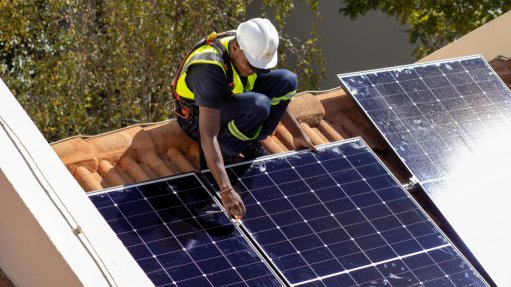West African countries tell Europeans to keep their ‘dirty fuel’
Five West African nations are banning ‘dirty’ European fuels – exported fuels with higher sulphur levels – in response to concerns over vehicle emissions and in an effort to bring safer, cleaner air to more than 250 million people.
On Monday the United Nations Environment Programme (UNEP) said that last week Nigeria, Benin, Togo, Ghana, and Côte d’Ivoire introduced strict standards that will ensure cleaner, low sulphur diesel fuels, and better emissions standards, thus effectively cutting off Europe’s West African market.
Earlier this year, a report by the non-governmental organisation Public Eye exposed how European trading companies are exploiting weak regulatory standards in West African countries, thus allowing fuels with sulphur levels that are up to 300 times higher than those permitted in Europe.
“West Africa is sending a strong message that it is no longer accepting dirty fuels from Europe,” said Erik Solheim, head of UNEP.
“Their decision to set strict new standards for cleaner, safer fuels and advanced vehicle emissions standards shows they are placing the health of their people first.”
He hailed the move as an example for other countries, noting that air pollution kills millions annually.
“We need to ensure that all countries urgently introduce cleaner fuels and vehicles to help reduce the shocking statistics,” stated Solheim.
In addition to new fuel standards, the group of West African countries has agreed to upgrade their own public and private refineries to meet the same higher standards by 2020.
UN Environment has been working with countries in West Africa to develop policies and standards that will stop the import of fuels with dangerously high levels of sulphur, as well as to introduce cleaner fuels and vehicles.
Reducing such emissions around the world is essential to ensure levels of urban air pollution and climate emissions come down.
Combining low-sulphur fuels with advanced vehicle standards can lead to as much as a 90% reduction in harmful emissions.
According to Nigeria’s Environment Minister Amina J. Mohamed, for 20 years, Nigeria has not been able to address the vehicle pollution crisis due to the poor fuels we have been importing.
“Today we are taking a huge leap forward … limiting sulphur in fuels from 3 000 ppm to 50 ppm. This will result in major air quality benefits in our cities and will allow us to set modern vehicle standards,” said Mohamed.
Mohamed met with Lilianne Ploumen, Dutch Minister of Foreign Trade and Development Cooperation in the Hague on Monday in order to take stock of the progress being made to improve the quality of fuels that have been exported from Dutch ports to countries in West Africa, as The Netherlands produces many of the exported dirty fuels.
“The recent report from the NGO Public Eye made abundantly clear that coordinated action is needed to stop the practice of exporting dirty fuels to West Africa,” said Ploumen.
“I am very pleased West African governments quickly decided to introduce standards that will help accessing European standard quality fuels. Their people deserve cleaner air, better health, and a cleaner environment. I commend UN Environment for their excellent work,” she added.
Comments
Press Office
Announcements
What's On
Subscribe to improve your user experience...
Option 1 (equivalent of R125 a month):
Receive a weekly copy of Creamer Media's Engineering News & Mining Weekly magazine
(print copy for those in South Africa and e-magazine for those outside of South Africa)
Receive daily email newsletters
Access to full search results
Access archive of magazine back copies
Access to Projects in Progress
Access to ONE Research Report of your choice in PDF format
Option 2 (equivalent of R375 a month):
All benefits from Option 1
PLUS
Access to Creamer Media's Research Channel Africa for ALL Research Reports, in PDF format, on various industrial and mining sectors
including Electricity; Water; Energy Transition; Hydrogen; Roads, Rail and Ports; Coal; Gold; Platinum; Battery Metals; etc.
Already a subscriber?
Forgotten your password?
Receive weekly copy of Creamer Media's Engineering News & Mining Weekly magazine (print copy for those in South Africa and e-magazine for those outside of South Africa)
➕
Recieve daily email newsletters
➕
Access to full search results
➕
Access archive of magazine back copies
➕
Access to Projects in Progress
➕
Access to ONE Research Report of your choice in PDF format
RESEARCH CHANNEL AFRICA
R4500 (equivalent of R375 a month)
SUBSCRIBEAll benefits from Option 1
➕
Access to Creamer Media's Research Channel Africa for ALL Research Reports on various industrial and mining sectors, in PDF format, including on:
Electricity
➕
Water
➕
Energy Transition
➕
Hydrogen
➕
Roads, Rail and Ports
➕
Coal
➕
Gold
➕
Platinum
➕
Battery Metals
➕
etc.
Receive all benefits from Option 1 or Option 2 delivered to numerous people at your company
➕
Multiple User names and Passwords for simultaneous log-ins
➕
Intranet integration access to all in your organisation


















